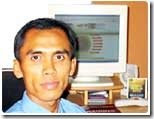INTRODUCTIONPumps and compressors are generally critical machines in any production process, and hence it is vital that maintenance is most effective for these units. This course aims to provide delegates with a comprehensive understanding of how to use a combined predictive and preventive maintenance approach to achieve maximum reliability and greatest understanding of any deterioration that may occur.
WHO SHOULD ATTENDEngineers, supervisory and technical staff involved in the monitoring, predictive maintenance and diagnostics of pumps and compressors.
PROGRAM OBJECTIVESThe program assumes familiarity with the design and construction of pumps and compressors. From this starting point it adopts an analytical approach to understanding the failure of all types of pumps and compressors. From a component-by-component perspective, the program investigates the root causes of failure, and relates these to operating conditions and process parameters. Design, installation, lubrication and wear related failure mechanisms are identified and a detailed understanding of the troubleshooting and diagnostic methods needed to detect and identify these is developed. The program provides participants with the knowledge needed to be effective in the inspection, monitoring and diagnostics of pumps and compressors, with emphasis placed upon the importance of a combined condition monitoring and strip-down inspection approach to maintenance.
TRAINING METHODOLOGYThe program is delivered in a combination of lecture style and computer-based training. In addition, a significant amount of time is set aside for small working group activity when addressing case study problems. Extensive use is made of case study material to underline the key aspects of the course and to give the delegates exposure to current best practice. PROGRAM OUTLINEDAY — 1
DAY — 2
DAY — 3
DAY — 4
DAY — 5
| Instructor
PT. FOCUS TRACO INDONESIA
|
Kamis, 13 Agustus 2009
Pumps & Compressors Predictive Maintenance & Diagnostics
Promotion Management
TUJUAN
SASARAN PESERTA
MATERIKonsep, Praktek dan Lingkungan Komunikasi Pemasaran Yang Terintegrasi
Membidik, Komunikasi dan Persuasi ; Perspektif Konsumen
Optimizing the Promotion Mix
Trade & consumer promotion strategy
Strategi promosi Melalui Iklan
Pemilihan Media Yang Efektif
Exhibition dan sponsorship strategy
Procurement and Contracting Strategy, a theory and experience sharing | Instructor
Schedule
Venue
Tuition Fee
Registration
PT. FOCUS TRACO INDONESIA
|
Procurement and Contracting Strategy, a theory and experience sharing
ABOUT THE COURSEIn most project related companies, Procurement Department spends can be up to 60% of company expense. Such spendings are are both from the purchase of goods & services to support company operation. Being able to properly control and manage such spending through qualified Procurement Department will result in significant add values to the company. This course will provide attendees with comprehensive skills on purchasing process & some other related issues. It will also cover the e-procurement which nowdays becoming more common & do-able. In addition to those, Governing Regulations discussion will also equipt all delegates with more weapon to perform on the day-to-day activities. DESIGNED FORIndividual involved in purchasing, tendering, project enduser or suppliers. This include contracting & procurement specialist. WHAT WILL YOU LEARN
COURSE CONTENTFunction of Purchasing Management
Current Global Trends in Purchasing Management Governing Regulations:
Procurement Process - Stage 1
- Stage 2
Negotiation Skills & Technique
Intoduction to Purchasing Management
Introduction of Business Contract
E-Procurement
Procurement and Contracting Strategy, a theory and experience sharing | Instructor
Schedule
Venue
Tuition Fee
Registration
PT. FOCUS TRACO INDONESIA
|
Reservoir Fluid Properties
INTRODUCTIONHydrocarbon systems found in petroleum reservoirs are known to display multi-phase behavior over wide ranges of pressure and temperatures. The most important phases that occur in petroleum reservoirs are: liquid phase (crude oil or condensates) and gas (natural gases). This course will explain the hydrocarbon phase behavior and practical application in reservoir and production engineering. Firstly it will review the principles of phase behavior and illustrate the use of phase diagram in describing the volumetric behavior of single-component, two-component, and multi-component system. It will also present numerous mathematical and graphical correlations for estimating physical and critical properties of the undefined petroleum fraction, evaluation of properties of natural gases and introduces their application in Darcy’s equation and material balance equation. A complete and cohesive independent unit on methods of determining the crude oil physical properties, presents the concept and application of vapor-liquid phase equilibrium, developments and advanced in the field of empirical cubic equation of state and application in petroleum engineering. Details scheme of splitting and lumping of petroleum-fraction. Properly understanding the reservoir fluid properties is very significant and are very importance steps during the entire life of the oil and reservoir developments and operations. This five-day training will provide a comprehensive knowledge and understanding of reservoir fluid properties and application to reservoir and production engineering to keep excellent reservoir and production performance as long as possible. OBJECTIVE
OUTLINEBasic Phase Behavior
Pure Component Physical Properties and Characterizing Undefined Petroleum Fraction
Properties of Natural Gases
Phase Behavior of Crude Oils
Vapor-Liquid Phase Equilibrium
Equation of State
Splitting Lumping Schemes of Petroleum Fraction
WHO SHOULD ATTENDThe following selected participants should attend this course:
| Instructor
Schedule
Venue
Tuition Fee
Registration
PT. FOCUS TRACO INDONESIA
|
Pipe and Fitting Identification
INTRODUCTIONFittings plays a very important role in piping system It is impossible to construct pipe line or piping system without fittings, because pipe fabrication is limited by its length and also pipe lay out needs to deviate in direction and also needs to change in size to change the velocity or branching to many outlets. For connection to some equipments pipe needs to have a special fittings. For this reasons the knowledge of fittings is important for engineers or operators who deal with piping system. OBJECTIVEThe objective of the training is to give additional knowledge to the participants about fittings type and its function and all the requirements for its application in the piping system, including standard. COURSE OUTLINE
| Instructor
Schedule
Venue
Tuition Fee
Registration
PT. FOCUS TRACO INDONESIA
|

